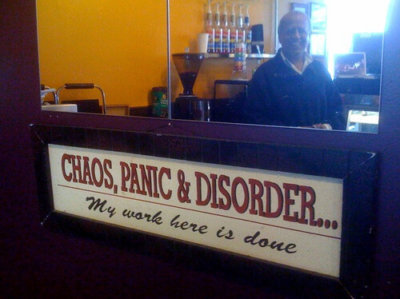Dealing With Anxiety – When is it Time to Seek Help?
What is anxiety, really?
The word ‘anxious’ is used in everyday speech to mean we are nervous about something, like a test or presentation.
But in psychology anxiety is not just garden-variety nervousness with obvious causes. Anxiety instead refers to a kind of free-floating, ongoing and persistent sense of worry, tension, and dread that has no rational cause.
You don’t have to face anxiety alone. You can get help from a professional, trained therapist from the harleytherapy.com platform, where you can talk to a counsellor anywhere by online or book affordable therapy in person around the UK.
Symptoms of anxiety
Feelings of fear. Even if it makes no sense to feel scared, anxiety will leave you feeling some form of fear, including lower forms like dread or unease.
Feeling out of control. You feel like you have no power over your life and emotions as you can’t pinpoint exactly why you feel so scared and nervous.
A sense of helplessness. Without knowing what could stop the feelings you are experiencing, you can start to feel completely overwhelmed.
Tension. This can include physical symptoms like headaches and muscle pain.
Obsessing on what you are feeling. Anxiety is so irrational that often you can start to even have ‘anxiety about the anxiety’, exacerbating what you are already struggling with.
Panic. The overwhelm can escalate into panic or even panic attacks. Panic attacks include physical symptoms like breaking out in a sweat, feeling suddenly very hot or cold, a tightening of your chest, and a beating heart.
When is it stress and when is it anxiety?
Stress is a feeling of overwhelm that has a clear cause or trigger. Life throws something at you you didn’t expect, or you make a difficult choice, and the resulting sense of frustration, tension and worry is stress.
Stress can of course be irrational – you can become so blinded by your emotions and upset that you have exaggerated, dramatic thinking. But it is rational in the sense that you know why you are going through it. So in this way it is under your control.

By: David Goehring
Anxiety, on the other hand, is a feeling of worry and and tension that doesn’t seem to have any exact cause. Even if you try to put it down to one thing, you deal with that thing and the feeling doesn’t go away. And underneath the emotional current is fear, not surprising when you feel so helpless to rationalise what you are experiencing.
In summary, anxiety is less rational and more fear-based than stress.
For more on this subject read our article on The Difference Between Stress and Anxiety).
The symptoms that you need help for anxiety
Waiting until your life is in pieces and you ‘really need help’ is not a good tactic when it comes to your psychological health. Therapy is useful for anyone who is experienced challenges in life and the sooner you start to work on your issues, the better the chance you can manage them before they do real damage to your relationships, career, and wellbeing.
A good counsellor or psychotherapist creates a safe environment for you to express how you feel about what you’re growing through, and can guide you to see new perspectives that those close to you might not see.
Consider seeking help for anxiety especially if the following apply:
- your anxiety has been going on for several weeks and seems to be getting worse over better
- you have started feeling anxious about your anxiety itself
- your daily life, such as work, home, relationships, and hobbies, is beginning to suffer because of your anxiety
- you sometimes feel completely overwhelmed by your anxiety and are experience what feel like panic attacks
- It’s also very important to seek help if your anxiety has turned into an actual anxiety disorder.
Anxiety disorders
Generalised anxiety disorder – long-term anxiety which runs your life and means you never

properly relax. You might also suffer sleeplessness, feel constantly distracted, and have dizzy spells.
Social anxiety disorder– more than just being anxious about social events, this disorder sees your anxiety about social interaction affecting your everyday quality of life.
Panic disorder – experiencing panic attacks on a regular basis for no obvious reason.
Post-traumatic stress disorder – ongoing psychological and physical stress after surviving a traumatic experience.
Phobias – these can include claustrophobia and agoraphobia, or things like fear of flying
Obsessive compulsive disorder – involving anxiety but its own separate disorder, OCD involves managing obsessive thoughts that cause anxiety by using ritualistic thought patterns or behaviours.
It’s worth noting that anxiety can also come hand in hand with depression.
Therapies for dealing with anxiety
Most forms of counselling and psychotherapy help with anxiety because they create a safe space for you to gain clarity on what you are going through. They also help you cultivate your inner strength, leaving you to feel stronger and safer even when life does become difficult.
Cognitive behavioural therapy (CBT) is often recommended for generalised anxiety disorder as it helps you gain recognition and control of your thought patterns. Mindfulness-based cognitive therapy (MBCT) adds in mindfulness techniques to help you become more aware of your thoughts and feelings and differentiate between what you are really experiencing in the present moment compared to what your mind is telling you you are experiencing.
Do you have an experience with anxiety you’d like to share? Do so below.





I thought that it was interesting that you explained anxiety is the feeling of worry and tension that doesn’t have an exact cause. I would imagine that this would be difficult to deal with on your own. I would be sure to receive counseling to help relieve myself of this anxiety so that I could move on and be happy.